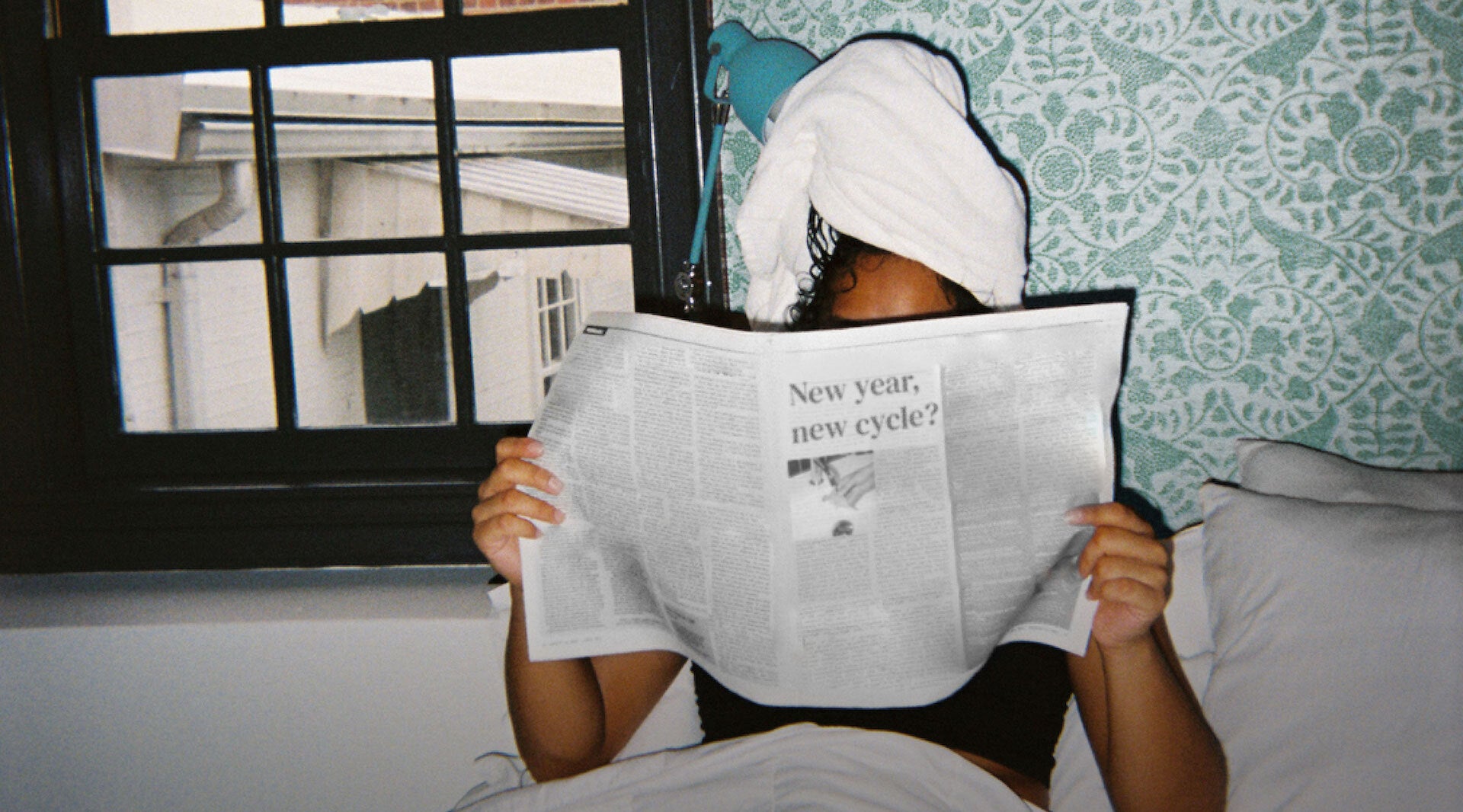You’ve probably all heard of the legendary Kiran Gandhi running through the streets of London blood flowing down her leg. Gandhi’s period, and the horrendous cramps that came with it, happened to start on the day of the London marathon, potentially messing up the fruits of a year’s worth of training.
On the day, Gandhi decided to embrace auntie flow and take it into her own hands, forgoing tampons or pads and bleeding openly- owning it for sisters up and down the country.
So what is the freebleeding movement?
Gandhi, although iconic in recent times, isn’t the first and likely won’t be the last feminist freebleeder. The movement started in the 70s as a rallying cry against period poverty and has been repeatedly embraced as a protest against tampon tax & inaccessible period products since.
Bleeding in public with period stains on our clothes might seem drastic and frankly rather scary for most of us but with the introduction of period proof underwear it is much easier to freebleed without having to buy a new wardrobe every month. Plus, anecdotal evidence is increasingly showing that freebleeding isn’t just a feminist statement, but potentially a great solution to a number of medical problems.
So let’s talk freebleeding and 6 reasons why period proof underwear might be a potential great solution for you.
1. Post Pregnancy
You have enough to think about post pregnancy without throwing post-partum bleeding into the mix. If you have experienced vaginal cuts & stitches during pregnancy tampons or menstrual cups can also be a big no no. You might find you’re too sensitive for pads as well. No worries we have solved the problem: period pants - just like normal underwear that absorbs your period.
2. Menopause
Ah menopause. You would at least hope that with all the new things you have to deal with you could at least wave goodbye to periods, but alas no things aren’t always that quick or easy. Now you also have to contend with erratic flows of menstrual fluid, hot flushes & itchy vaginas.
3. Menstrual Cramps
For some of us menstrual cramps are a debilitating monthly ordeal. If you find yourself having to block out your calendar for a well-deserved pity party for a few days each month then be comforted in knowing you are not alone! Freebleeding into our period pants isn’t guaranteed to suddenly magic away the killer cramps, but a lot of our customers have told us anecdotally that switching their tampons in favour of period proof underwear and/or cups has made a difference. The theory goes that when a tampon expands inside you it can cause additional pressure to the areas that is cramping so saying adios to your tampon could provide some light relief.
4. Heavy Bleeding
Embracing period leaks might sound particularly foreign to those who spend so much time worrying about preventing them. The joy of period proof underwear is that it provides a happy medium. For once you can feel protected without having to feel like you are in a nappy.
5. Vaginal Irritation
if your vagina itches on your period this is the option for you! Mainstream pads & tampons (not mentioning any names 😳) are allergen zones. Made from plastic, synthetic materials & bleaching agents, gynaecologists have long confirmed that cheap traditional period care has links with vaginitis- basically your vagina is a little bit allergic to the nasties on your pads & tampons.
And those nasties aren’t just causing a little bit of irritation. Plastic is non-breathable so a recipe for getting a bit sweaty down there.
6. Vaginismus
Vaginismus is when your vaginal walls tighten upon insertion of an object. For some people the problem is specific to certain items, for others it is a no go area for anything. If you struggle with tampons, having to painfully shove them up there to get them in place, then they are best just avoided. Just switch to pants instead.
Blog disclaimer
Our blog is intended to share information and ideas around periods, health, and sustainability. While we do our best to keep content accurate and up to date, things can change over time. The information here is not intended as medical advice — for any health-related concerns, please consult a qualified healthcare professional. For more information on our claims, please see our Claims Page, and for the most up-to-date product information, please visit our Product Pages.





